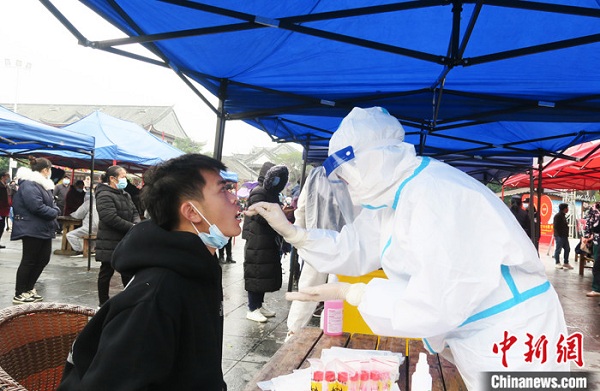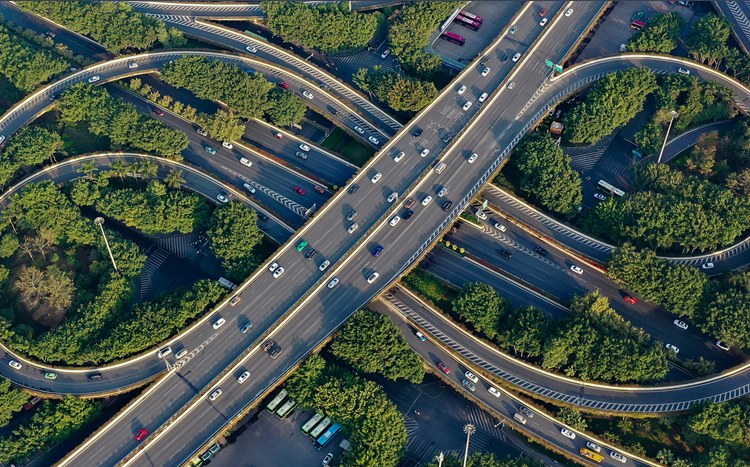Baise implements increased anti-COVID-19 measures

A Baise resident undergoes a nucleic acid test. [Photo by Huang Guoshun/China News Service]
All residents in Baise, Guangxi Zhuang autonomous region are required to undergo home quarantine starting from Feb 7 and reduce unnecessary travel outside of going to purchase life necessities and taking nucleic acid tests.
Guangxi Zhuang autonomous region reported 37 confirmed COVID-19 cases and five asymptomatic carriers on Feb 6, while Baise reported a total of 43 confirmed COVID-19 cases as of 4 pm on Feb 6 since the city's first recent COVID-19 case was confirmed on Feb 4.
Baise's first recent case was found in Debao county. The patient had traveled from Shiyan community of Shenzhen's Bao'an district in Guangdong province. The patient had tested negative on Jan 25 and then drove to Baise on Jan 26.
All schools and training institutes in Baise are now temporarily closed. Local public transportation and sites are also temporarily closed with the exception of those that provide life necessities, such as supermarkets, hospitals, as well as pharmacies. Restaurants are recommended to provide takeaway delivery services as much as possible.
Essential workers, including volunteers, medical workers, and delivery workers, are allowed to travel citywide with travel permits.
Highways in Baise are also temporarily closed and the opening of border checkpoints has been postponed. Planes and trains passing Baise are not allowed to let passengers get on or off in the city.
Train stations, including Baise, Tianyang, Tiandong North, Pingguo, Debao, and Jingxi stations, are now closed. People that have already purchased tickets departing from or arriving at these stations can apply for refund within 30 days.
Moreover, the county-level city of Jingxi under Baise's jurisdiction has started a mass nucleic acid testing campaign on Feb 7.














